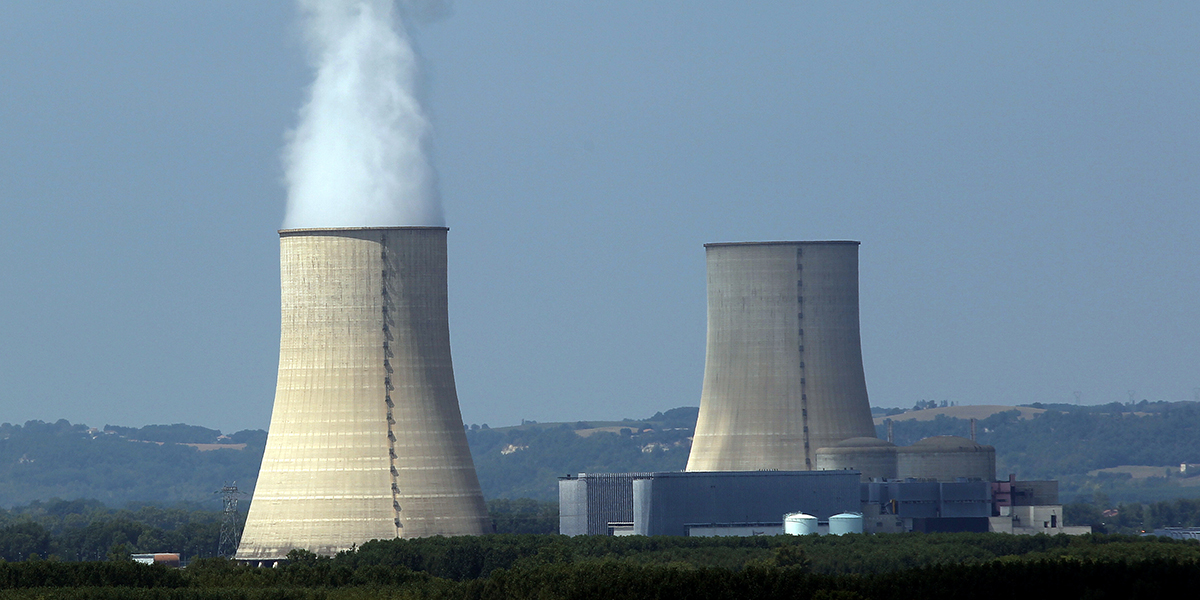Georgia Power Exploring New Nuclear Plant In Stewart County

View of the Golfech nuclear power plant, southwestern France, Thursday, Aug. 6, 2015. France derives about 75% of its electricity from nuclear energy, due to a long-standing policy based on energy security. (AP Photo/Bob Edme)
Bob Edme / Associated Press
Georgia Power is in the middle of three days of testimony before the state’s Public Service Commission to defend how it plans to get electricity in the future and how much electricity it thinks the state will need over the next 20 years.
Georgia Power is required to file an Integrated Resource Plan every three years, which must be approved by the commission in a months-long review process.
On Monday, Georgia Power said it bought land in Stewart County to explore building a nuclear power plant there.
“We’re looking at Stewart County because as we know, nuclear is going to be an important part of our future, especially as a zero-carbon-emitting clean technology,” said Alison Chiock, Georgia Power’s director of resource policy and planning. “There’s a lot of benefits at that base load that reliable generation brings and so we want to make sure nuclear continues to be an option.”
Commissioners asked why Georgia Power didn’t ask the commission before buying the land. Chiock said that, as one of the largest landowners in the state, the utility company routinely buys land for future energy generation.
“We’re simply saying ‘let’s do the studies to understand whether Stewart County is a viable nuclear site.’ Based on preliminary studies, we believe the answer is yes and that would take a three-year period,” she said. “And then the last four-year period and half of the dollars that we’re allocating is really for discussions with the Nuclear Regulatory Commission and that review process.”
The utility also told regulators it wants to add more than 500 megawatts from renewable energy generation, such as solar and wind power.
Colleen Kiernan, director of Sierra Club Georgia, said it represents a smaller investment in renewable energy than in previous years.
Commissioners noted Monday that the plan doesn’t outline how it would deal with the EPA’s Clean Power Plan that’s currently held up in court.
Georgia is one of 27 states suing to block implementation, which might require some coal plants to shut down in the state.
Officials grilled Chiock on what the utility would do if the EPA gets its way in court.
“We would come back to this commission with additional costs or recommendations for decertifications if and when that is needed,” she said.
9(MDAxODM0MDY4MDEyMTY4NDA3MzI3YjkzMw004))








